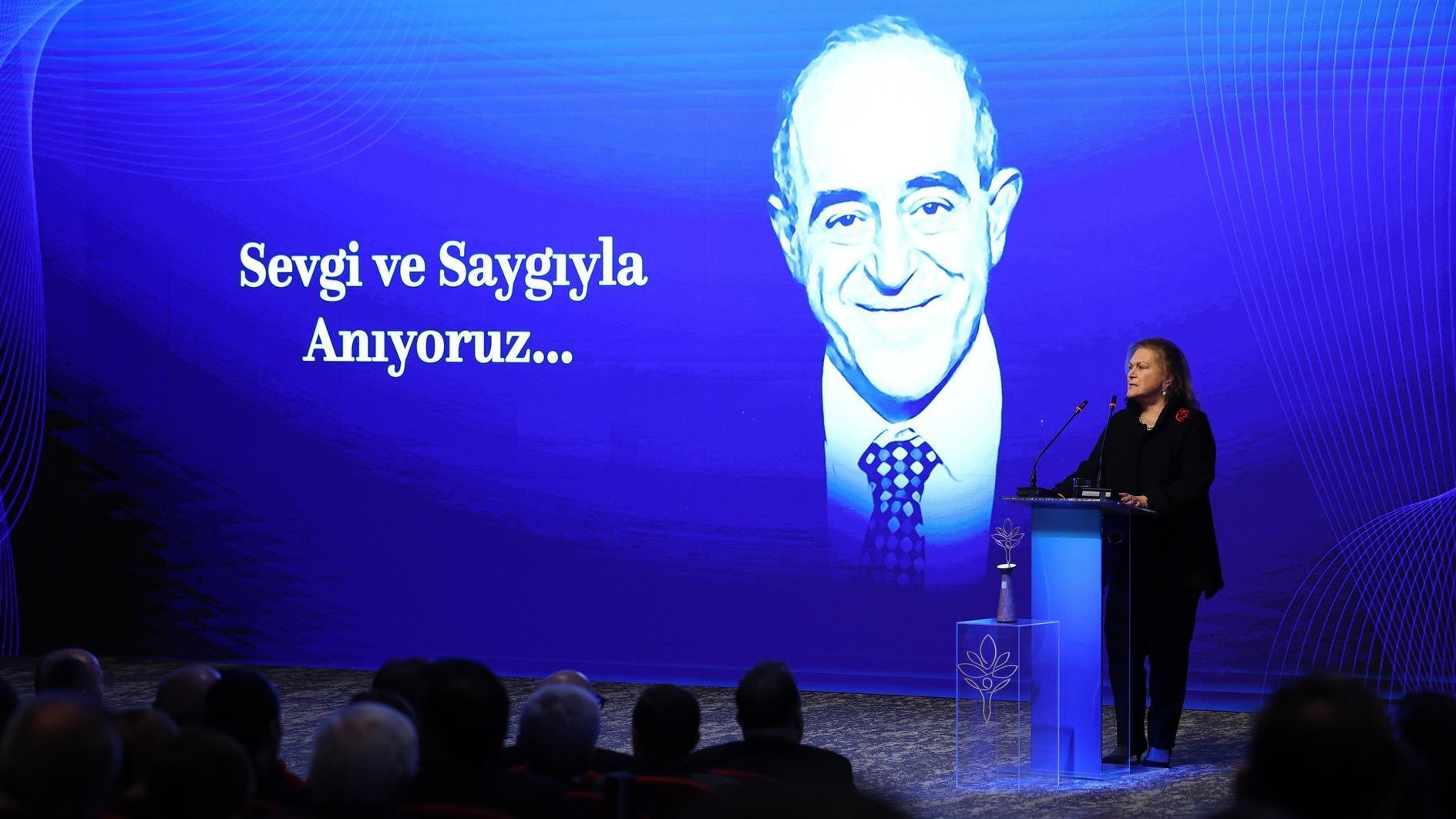
The Sakıp Sabancı International Research Awards commemorated the 21st anniversary of Turkish businessman and philanthropist Sakıp Sabancı's passing by honoring distinguished scholars and emerging researchers tackling some of today's most pressing global challenges on April 10 in Istanbul.
The Jury Prize was awarded to renowned political theorist and social critic Wendy Brown for her profound contributions to the study of democracy, neoliberalism and the transformation of values in an era of global upheaval.
Brown’s work offers a powerful critique of how political, economic and cultural forces have reshaped the meanings of freedom, justice and democracy.
The jury commended her for illuminating the ways in which neoliberal rationality corrodes democratic ideals, how identity and tolerance become instrumentalized within regimes of power and how contemporary crises have unsettled long-established social contracts.
In her acceptance speech, Brown remarked, “We must confront the fact that values are human-made. We do not discover them — we decide on them and affirm them. Their being human-made does not lessen their importance; on the contrary, values are the very foundation of human freedom.”
She praised the legacy of Sakıp Sabancı for championing education and open intellectual inquiry as pillars of a vibrant democracy and expressed her gratitude to Sabancı University for carrying this vision forward.
The awards, established in his honor as a part of his will, are the first and only international award program in the field of social sciences in Türkiye.
“Since the inception of the award program, more than 600 articles from 40 countries have been carefully reviewed by our esteemed jury presidents and members. From economics to sociology, from Turkish and Islamic art to the history of Türkiye, young researchers and world-renowned scholars in their fields have been supported," stated Güler Sabancı, chair of the Board of Trustee at Sabancı University.
In addition to the Jury Prize, the event also honored outstanding contributions through awards presented to early-career scholars for original and innovative research aligned with this year’s theme “Redesigning values in a changng world order.”
The recipients of the 2025 Article Awards were Uğur Aytaç from the Department of Philosophy and Religious Sciences at Utrecht University, Cenk Özbay from the Faculty of Arts and Social Sciences at Sabancı University and Vafa Ghazavi from the Faculty of Social and Political Sciences at the University of Sydney.
Moving beyond liberal democracy
In a roundtable discussion within the scope of the event, Brown discussed the shifting values in today’s political climate central to her scholarly work.
She emphasized that neoliberalism, as it has evolved, undermines democratic ideals by fostering inequality and stoking authoritarian tendencies.
Brown noted that while neoliberalism promised economic growth, it has resulted in social instability. States have increasingly stepped in to fill the “mess of what neoliberalism is leaving in its wake” due to the deregulation of markets.
Highlighting that the deregulation of the economy had the effect of deregulating politics, Brown said, “The combined effort of the state to figure out how to produce a prosperous national economy in the context of globalization, and how to mobilize the masses for something other than economic interests has brought the state back into visibility, prominence and power.”
“What we see today is political power gone rogue.”
This has led to the rise of new forms of social mobilization centered on religion, patriarchy, nationalism and family values, all used to distract from economic hardship and consolidate power.
Suggesting that current institutions, riddled with neoliberalism combined with growing authoritarian nationalism, “serves a very few to allow them to accumulate more wealth,” failing to improve the welfare of everyday citizens as more is extracted from services and provisioning.
Resistance to the influence of financial capital comes aplenty, with protests across the world increasing as a reaction against the ways in which neoliberalism has shaped life for everyday citizens.
She emphasized the importance of solidarity and creativity, especially among younger generations, but also recognized the challenges of sustaining momentum in such turbulent times.
Despite the dominant influence of capital and state power, Brown remained hopeful, noting that many people still recognize the need for a more equitable future.
Local organized forces are not equal in power or in organization, Brown noted. “What we do have is the vast majority of humanity on the planet.”
Looking ahead, Brown expressed concern about potential crises — environmental, geopolitical and economic — that could shape the global order. Despite challenges, she encouraged activism in the pursuit of a different form of democracy, one that addresses the social, political and economic issues that liberal democracies have failed to tackle.
In her view that liberal democracy is “an exhausted historical form,” the struggle is not about reclaiming lost rights, but about mobilizing for a transformative, more inclusive future.